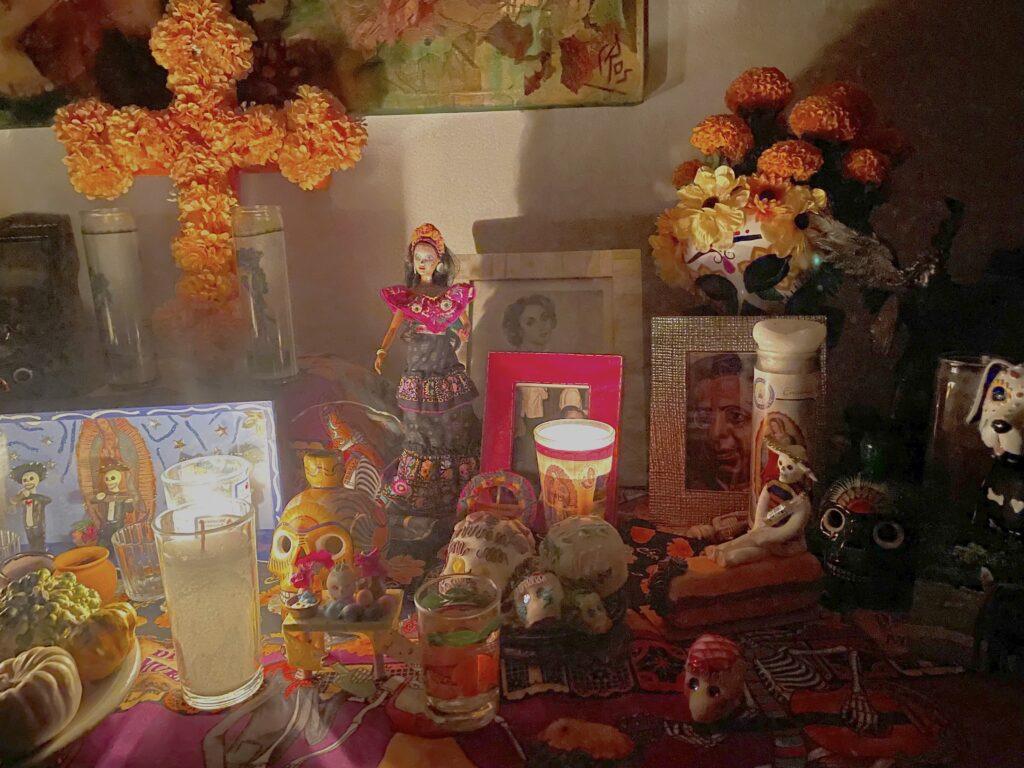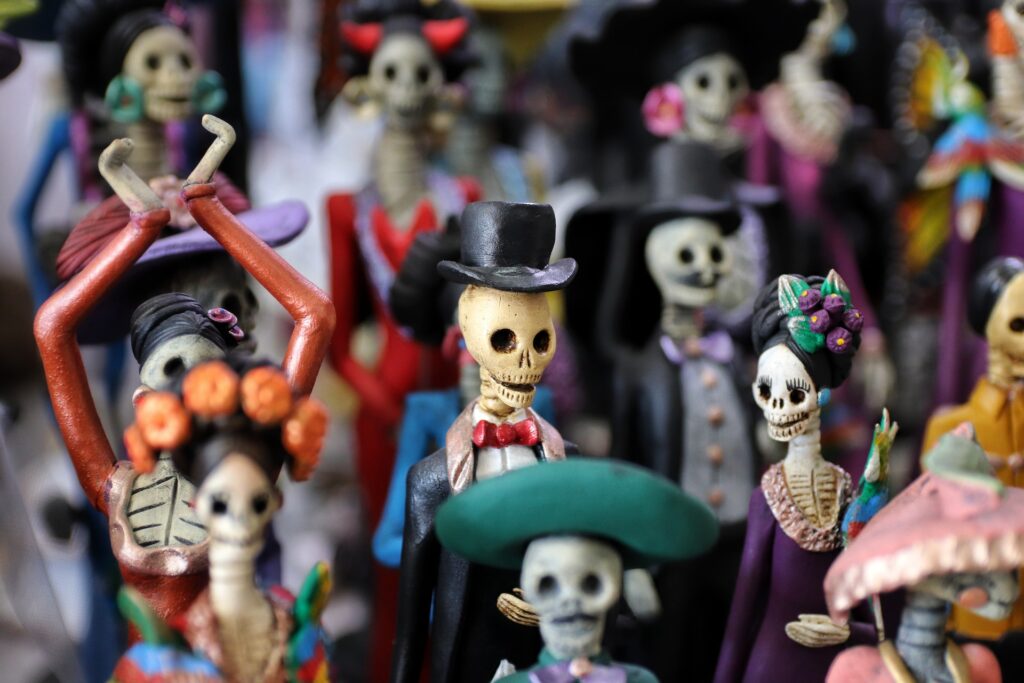Mexico’s Day of the Dead, or Día de los Muertos, is a vibrant and deeply symbolic celebration. This rich cultural heritage was introduced the world in 2017 through the movie “Coco,” produced by Pixar Animation Studios. The film became a cultural phenomenon and a commercial one too, both in Mexico and internationally. Its authentic portrayal of Mexican culture and it’s the vibrant celebration. Besides the Increased Global Awareness of the Día de los Muertos. Furthermore, its global success raised awareness of Día de los Muertos, and allowed people from diverse cultures to understand and appreciate its significance.
This focus on the Day of the Dead also highlights the importance in Mexico of remembering and honoring ancestors. In this post, I talk about how this celebration beautifully exemplifies Hofstede’s Intercultural Dimensions. In last year’s blog Mexico’s strong culture of Uncertainty-Avoidance I made the first exploration of how this day mirrors one of Mexico’s Intercultural dimensions. Today, we go deeper in how this ancient tradition explores both Mexican society’s core values, and other Hofstede’s framework elements. Through this lens, we’ll delve into the collectivist nature and deep respect for tradition in the Mexican culture.

Decoding Mexico’s Day of the Dead
This multi-day festival celebration observed from October 31st to November 2nd, shows how families gather to honor deceased loved ones. Throughout Mexico elaborated altars are created and adorned with marigold flowers, photographs, favorite foods, and mementos. It is believed that during this time, the spirits of the departed return to the earthly realm to be with their families. The atmosphere is one of joyous celebration, where communities come together to remember and cherish their ancestors.

Intercultural Dimension Analysis
- The Collectivist Spirit of Día de los Muertos. My last blog on the Power of Individualism and Collectivism talks about this particular Hofstede’s framework dimension. It identifies Mexico as a collectivist society, emphasizing close-knit relationships, interdependence, and communal harmony. Día de los Muertos perfectly embodies this dimension. Families unite in preparing for the festivities, sharing responsibilities, contributing to the collective memory and honoring the deceased, through communal altars.
- Masculinity/Femininity Dimension: Mexico places great importance on family bonds, a value reflected in Hofstede’s Masculinity/ Femininity dimension. Mexico has the second highest Masculinity ranking in Latin America, indicating a higher degree of gender differentiation of roles. The male dominates a significant portion of the society and power structure. This high Masculinity Index impacts both genders. It generates a more assertive and competitive female population, although not at the level of the male population. Día de Muertos and other festivities emphasize the role of women in Mexican families. They are typically responsible for passing down traditions, reinforcing and nurturing relationship-oriented aspects.
- Long-Term Orientation: Hofstede’s Long-Term Orientation dimension emphasizes the preservation of traditions and the importance of history and past events in influencing present and future actions. Día de los Muertos, rooted in ancient indigenous beliefs and practices, emphasizes Mexico’s strong long-term orientation. It serves as a testament to the enduring significance of tradition in Mexican society, providing a sense of continuity and cultural identity across generations.
- Uncertainty Avoidance: Uncertainty Avoidance reflects a society’s tolerance for ambiguity and uncertainty. Mexico, with its deeply ingrained spiritual beliefs, embraces the cycle of life and death with acceptance and grace. Día de los Muertos is a celebration that not only commemorates the departed but also acknowledges the inevitability of death. It encourages people to face uncertainty with courage and faith.

Day of the Dead: a strong Heritage
Mexico’s Day of the Dead intricately weaves cultural values into the fabric of Mexican society. Hofstede’s Intercultural Dimensions provide a nuanced understanding of the collectivist nature, strong family bonds, respect for tradition, and acceptance of life’s uncertainties inherent in this beautiful celebration. Día de los Muertos serves as a poignant reminder, emphasizing the importance of preserving cultural heritage and embracing the richness of diversity in our interconnected world.



